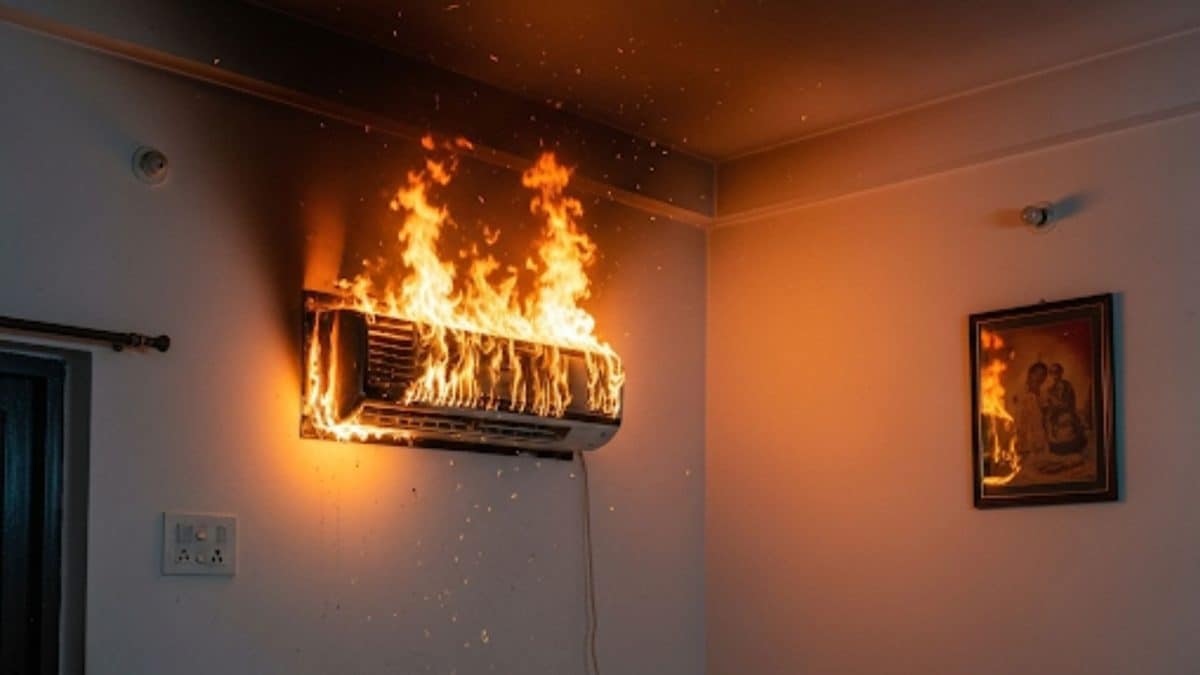Last Updated:
Experts point out that one of the main reasons is the prolonged, continuous use of ACs with many people running the machine throughout the night

Experts have urged regular AC servicing to prevent fires. (AI-Generated Image)
Faridabad was rocked by a late-night tragedy when three members of a family lost their lives after their air conditioner caught fire in Green Field Colony on wee hours of Monday morning. The victims, a husband, wife, and their young daughter, were sleeping on the second floor of their home when the incident occurred. Their son survived but remains in hospital under treatment.
The horrifying accident has once again raised concerns about the dangers of air conditioners catching fire, especially during the intense summer months. Similar incidents had been reported last year as well, with several cases linked to electrical short circuits and overheating. Experts warn that such mishaps can happen in any household, particularly when air conditioners are not serviced or maintained regularly.
Why Do AC Blasts Happen?
Experts point out that one of the main reasons is the prolonged, continuous use of ACs. In an attempt to escape the heat and humidity, many people keep their units running throughout the night, and sometimes even during the rainy season. This constant operation puts immense pressure on the compressor, causing it to overheat. “When the compressor heats up continuously, the risk of fire and even explosion increases,” an expert explained.
Another major factor is electrical faults. Short circuits often go unnoticed, especially when people are asleep at night, turning a minor spark into a life-threatening fire.
How To Stay Safe?
Specialists advice that small safety steps can prevent big tragedies:
1. Avoid running ACs nonstop: If the unit is old, do not operate it continuously. Make use of timer mode so the system shuts down automatically, allowing the compressor to cool and reducing wear and tear.
2. Service the AC regularly: Many households use air conditioners for months without cleaning or checking them. Filters should be cleaned every 7–15 days, and full servicing should be carried out periodically to check for wiring faults, plug issues, or potential short circuits.
3. Be cautious with turbo mode: Running the machine constantly in turbo mode puts additional strain on the system, which could lead to dangerous overheating.
4. Check both units of split ACs: While the inner unit gets attention, the outdoor unit often gathers dust and faces extreme heat. It should be cleaned regularly. Experts even suggest sprinkling a little water occasionally to keep its temperature in control, but only after ensuring the system is switched off.
The Faridabad case underlines that ACs, whether window or split, demand proper care. Older systems, in particular, need extra attention. Experts stress that a well-maintained unit not only provides efficient cooling but also ensures the safety of families.
September 08, 2025, 15:21 IST







